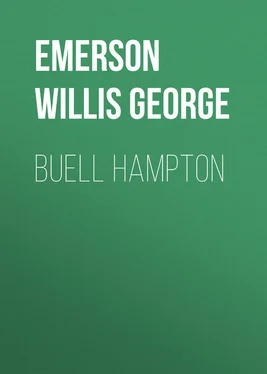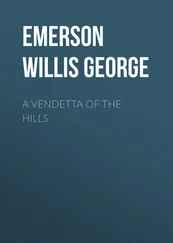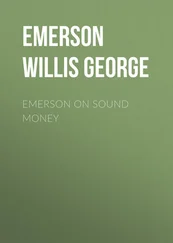Willis Emerson - Buell Hampton
Здесь есть возможность читать онлайн «Willis Emerson - Buell Hampton» — ознакомительный отрывок электронной книги совершенно бесплатно, а после прочтения отрывка купить полную версию. В некоторых случаях можно слушать аудио, скачать через торрент в формате fb2 и присутствует краткое содержание. Жанр: foreign_antique, foreign_prose, на английском языке. Описание произведения, (предисловие) а так же отзывы посетителей доступны на портале библиотеки ЛибКат.
- Название:Buell Hampton
- Автор:
- Жанр:
- Год:неизвестен
- ISBN:нет данных
- Рейтинг книги:5 / 5. Голосов: 1
-
Избранное:Добавить в избранное
- Отзывы:
-
Ваша оценка:
- 100
- 1
- 2
- 3
- 4
- 5
Buell Hampton: краткое содержание, описание и аннотация
Предлагаем к чтению аннотацию, описание, краткое содержание или предисловие (зависит от того, что написал сам автор книги «Buell Hampton»). Если вы не нашли необходимую информацию о книге — напишите в комментариях, мы постараемся отыскать её.
Buell Hampton — читать онлайн ознакомительный отрывок
Ниже представлен текст книги, разбитый по страницам. Система сохранения места последней прочитанной страницы, позволяет с удобством читать онлайн бесплатно книгу «Buell Hampton», без необходимости каждый раз заново искать на чём Вы остановились. Поставьте закладку, и сможете в любой момент перейти на страницу, на которой закончили чтение.
Интервал:
Закладка:
During all the progress and prosperity there was one class – the cattlemen – who were firm disbelievers in the agricultural permanency of the Southwest. Prominent among these disbelievers was John B. Horton, the cattle king. Major Hampton said, in the columns of the that the cattle barons wanted these rich, nutritious buffalo grass lands for their vast herds of cattle, and that in their selfishness they were willing to prevent their settlement by the actual tillers of the soil.
One afternoon Hugh went horseback riding down the Crooked Creek valley. He was exploring territory new to him, and presently he came to the banks of the Manaroya, a beautiful stream that had its rise in Horton’s Grove. The cool, refreshing waters of this rapid, pebble-bottomed brook were, indeed, a welcome sight. It presented a striking contrast to the dreary stretch of gray and brown prairie lands that lay monotonously level for miles in every direction; save a large elm-tree and Horton’s Grove, perhaps a mile away to the westward, which were like coral islands in a vast inland sea. Hugh had dismounted and was standing idly at its brink watching the restless, rippling waters in their flight from the gushing springs in the lichened woods above, on and on, even to the boundless ocean. Here the waters sparkled in all their purity – filtered dewdrops.
“How restful,” mused Hugh, “what a fairyland for dreams – for day-dreams.”
There, before him, the tiny bubbles in the eddies seemed to dance and laugh and chase each other round and round in romping play. Now they paused as if to rest – or to whisper great secrets – or, perhaps, it was to warn each other of the dread future in the mighty ocean beyond. Just below, the channel widened, and the noisy waters of the riffles changed into a miniature lake – calm, peaceful. The lone elm-tree, with its spreading branches, grew upon the brink; its gnarled and twisted roots reached far out into the bed that held the placid waters. This cool retreat was the summer home of the lazy turtle, of sunfish and of “mud-cat.” Out from coverlets of rock and root peeped many an unseen, blinking eye in wonderment at Hugh.
Here, in this tranquil pool, nature had fashioned, with her magic brush, a picture framed about with countless wild flowers. In this realistic dream every fluttering leaf on every limb and branch trembled in rhythm. Here the shadows sifted, the sunbeams danced, the birds flew. Here the butterflies floated lazily in holiday attire, as if on wings of pleasure. Here the gaudy-winged “snake feeder” skipped from side to side, across the waters, as if he were abroad in search of trade and barter.
Again, this embryonic lake was a mirror for sky and cloud – for each nodding flower and grass blade that craned its little neck, in vanity, over the margin, that it, too, might see itself reflected in this looking-glass of nature. Higher than Jacob’s Ladder appeared the bending sky and floating clouds, and yet, inverted, they seemed deeper than lie buried the broken images of a life.
Suddenly Hugh’s reverie was broken in upon by the calling of a brusque “Hello, there, pard-ner! Are you looking for mavericks?”
Hugh found himself face to face with a rather heavy-set man, with a full gray beard and soft dark eyes. The stranger had dismounted from his mustang, and stood eyeing Hugh critically from the opposite bank.
“I have lost no mavericks, that I know of,” replied Hugh, stiffly. “May I ask what you are doing and what you are looking for?”
“I am attending to my own affairs,” replied the man. “I am on my own land, which, perhaps, is more than you can say for yourself.”
“I may not be on my own land,” answered Hugh, half angrily, “but I am attending to my own business. Am I breaking any law by taking a gallop across the valley, or resting by this stream of water?”
The stranger laughed good-naturedly at Hugh’s irritation. “Hot blood of youth,” said he; “come, don’t be so touchy. There’s only a small thing between us – a narrow stream of spring water. You look like a manly fellow, and I suppose you are all right, although you are a stranger to me.”
“I am a resident of Meade,” said Hugh, “and the cashier of one of its banks.”
“Is that so?” asked the man, in surprise. “You are Mr. Stanton, I reckon, Captain Osborn’s friend from Chicago.”
“Exactly,” replied Hugh. “May I inquire your name?”
The stranger threw himself again into his saddle, touched spurs to his horse, and, at a single leap, cleared the brook. Dismounting at Hugh’s side, he said, “My name is Horton. My home is about a mile from here, in Horton’s Grove.”
Hugh’s breath was almost taken away. Here before him stood the great cattle king, John B. Horton, whose estimated wealth was ten million dollars; and yet a man as free from affectation as a cowboy.
“Give us your hand, young man,” said he. “It is well that we should be acquainted. I have been intending to come in and see you, but am kept so exceedingly busy, looking after my cattle, that I have but little time for social matters. Through the machinations of a band of cattle thieves, during the last year I have lost over a thousand head of beeves that were ready for the market.”
“Why, that is a terrible loss, Mr. Horton,” observed Hugh. “Is it not possible to catch the thieves?”
“Easier said than done, young man,” replied the cattle baron. “I would n’t care much for the thirty or forty thousand dollars’ worth of cattle they have already taken, if I could only break up the gang. However, I do not wish to bore you with a ranchman’s troubles. How do you like our country?”
“Oh, very much,” replied Hugh. “I am well pleased with it so far. It seems to be settled with a thrifty class of farmers, and their crops are certainly looking well.”
John Horton laughed derisively. “Farmers!” he ejaculated. “Why, young man, in five years there will not be a so-called farmer within one hundred miles of where you are now standing. The influx of self-styled settlers and farmers is a spasmodic farce, transitory in the extreme. You doubtless regard Meade as a growing, healthy town; yet, within five years from to-day, I shall pasture my cattle on the grass that will be growing in her streets.”
“You astonish me,” said Hugh. “With such a calamity confronting us there can be left but little hope.”
“I am aware,” said John Horton, “that Captain Osborn has a different belief. My old friend, Major Buell Hampton, also takes occasion to brand me as a ‘cattle baron’ in the columns of his paper. Nevertheless, Mr. Stanton, they are both my friends, and I esteem them both as royal good fellows. I assure you, however, that they are sadly mistaken in regard to this being a farmer’s paradise. Wait until the hot winds come. Now hot winds don’t hurt the buffalo grass a particle, for it is indigenous to this soil and climate; but there’s nothing grown by the farmer that can stand before the hot winds.”
“Major Hampton was telling me the other day,” said Hugh, “that the cattle thieves had just stolen two hundred head of your fattest cattle.”
“Yes, that is the latest outrage; but they have been stealing my cattle for the last year. Before the settlers came here we had no cattle thieves to speak of in this country. Major Hampton is a true Southerner, and is doing nis utmost to run down the thieves. I contend that the thieves are none other than the so-called farmers. The major, however, insists that the gang is made up of lawless cowboys.”
“The major seemed very much provoked when he heard of the theft,” said Hugh, “and from the article that appeared in the Patriot the following morning, I imagine that he would be a very severe judge.”
Читать дальшеИнтервал:
Закладка:
Похожие книги на «Buell Hampton»
Представляем Вашему вниманию похожие книги на «Buell Hampton» списком для выбора. Мы отобрали схожую по названию и смыслу литературу в надежде предоставить читателям больше вариантов отыскать новые, интересные, ещё непрочитанные произведения.
Обсуждение, отзывы о книге «Buell Hampton» и просто собственные мнения читателей. Оставьте ваши комментарии, напишите, что Вы думаете о произведении, его смысле или главных героях. Укажите что конкретно понравилось, а что нет, и почему Вы так считаете.












